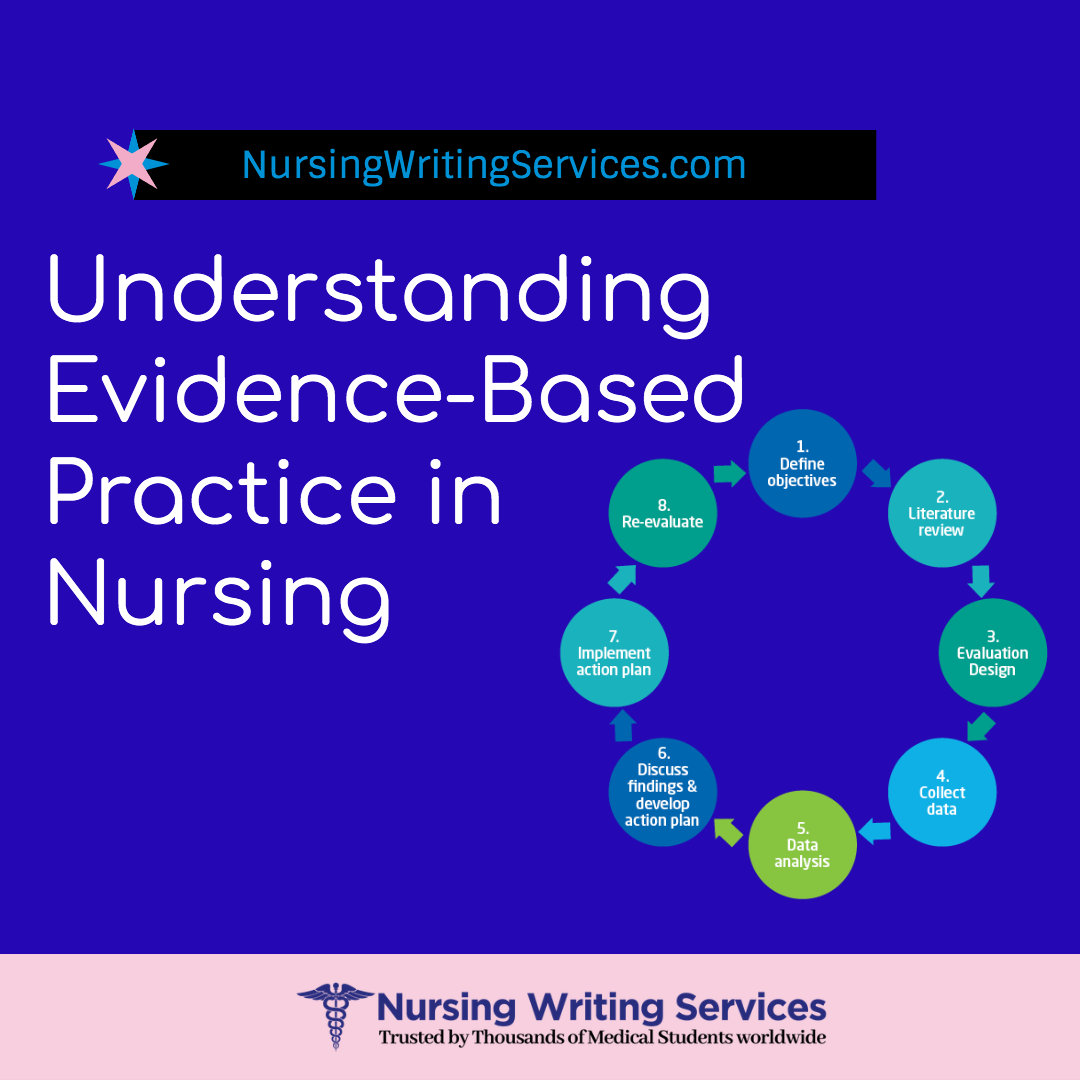
Understanding Evidence-Based Practice in Nursing
Evidence-based practice (EBP) is a concept that has been gaining popularity in nursing in recent years. It refers to the process of using the best available evidence to guide nursing practice. EBP is an essential component of nursing practice, and its use has been shown to improve patient outcomes, reduce healthcare costs, and enhance the quality of care provided. In this article, we will explore the concept of evidence-based practice in nursing, including its definition, importance, and how it is applied in practice.
Definition of Evidence-Based Practice
Evidence-based practice is an approach to nursing that uses the best available evidence to guide clinical decision-making. It involves the integration of three key components: the best available research evidence, clinical expertise, and patient values and preferences. EBP is grounded in the belief that nursing practice should be informed by the most current and reliable evidence, and that this evidence should be used in conjunction with the nurse's clinical expertise and the patient's individual needs and preferences.
The Importance of Evidence-Based Practice in Nursing
EBP is an essential component of nursing practice because it has been shown to improve patient outcomes, reduce healthcare costs, and enhance the quality of care provided. By using the best available evidence to guide clinical decision-making, nurses can ensure that they are providing the most effective and efficient care possible. This can lead to better patient outcomes, such as improved health, reduced complications, and shorter hospital stays.
In addition to improving patient outcomes, EBP can also help to reduce healthcare costs. By using evidence-based interventions, nurses can ensure that they are providing the most cost-effective care possible. This can help to reduce healthcare costs and make healthcare more affordable for patients and healthcare systems alike.
Finally, EBP is important because it helps to enhance the quality of care provided. By using evidence-based interventions, nurses can ensure that they are providing the highest quality care possible. This can lead to greater patient satisfaction and improved healthcare outcomes overall.
How Evidence-Based Practice is Applied in Nursing
There are several steps involved in the process of applying evidence-based practice in nursing. These steps include:
-
Asking a clinical question: The first step in applying EBP is to formulate a clear and concise clinical question. This question should be based on a specific patient population, intervention, comparison, and outcome (PICO) framework.
-
Searching for evidence: The next step is to search for the best available evidence to answer the clinical question. This evidence may come from a variety of sources, including research studies, systematic reviews, and clinical practice guidelines.
-
Appraising the evidence: Once the evidence has been gathered, it is important to critically appraise it to determine its quality and relevance to the clinical question at hand. This involves assessing the study design, sample size, bias, and other factors that may impact the validity and generalizability of the findings.
-
Integrating the evidence: The next step is to integrate the evidence with the nurse's clinical expertise and the patient's individual needs and preferences. This may involve adapting the evidence to the specific context of the patient and making adjustments to the intervention as necessary.
-
Evaluating the outcomes: Finally, it is important to evaluate the outcomes of the intervention to determine its effectiveness and impact on patient outcomes. This may involve collecting data on various clinical indicators, such as patient satisfaction, quality of life, and health outcomes.
Examples of Evidence-Based Practice in Nursing
There are many examples of evidence-based practice in nursing. Some common examples include:
-
Use of pressure ulcer prevention interventions: Nurses can use evidence-based interventions, such as repositioning, pressure-relieving devices, and skin care, to prevent pressure ulcers in high-risk patients.
-
Implementation of fall prevention strategies: Nurses can use evidence-based interventions, such as bed alarms, bed rails, and patient education
-
Use of pain management interventions: Nurses can use evidence-based interventions, such as non-pharmacological interventions, opioid-sparing strategies, and patient-controlled analgesia, to manage pain in patients.
-
Administration of vaccines: Nurses can use evidence-based guidelines to administer vaccines to patients, including schedules, routes of administration, and contraindications.
-
Implementation of infection prevention and control measures: Nurses can use evidence-based interventions, such as hand hygiene, use of personal protective equipment, and isolation precautions, to prevent and control the spread of infections in healthcare settings.
-
Conclusion
Evidence-based practice is an essential component of nursing practice that involves using the best available evidence to guide clinical decision-making. By integrating the best available evidence with clinical expertise and patient preferences, nurses can ensure that they are providing the most effective and efficient care possible. This can lead to better patient outcomes, reduced healthcare costs, and improved quality of care. By understanding the importance of evidence-based practice and its application in nursing, nurses can play a vital role in improving the health and well-being of their patients.

